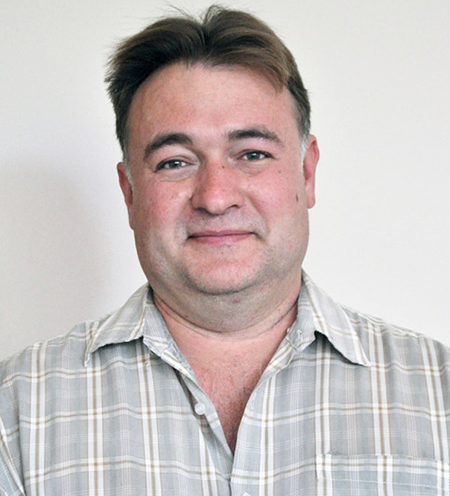Passion is not bound by gravity. It makes you excel where others merely succeed, and passion is what propelled Prof Stefan Ferreira of the North-West University's (NWU's) Centre for Space Research from a C1 to a B1 NRF rating.
This new rating places him among researchers who enjoy considerable international recognition by their peers for the high quality and impact of their recent research outputs. Stefan is regarded as one of the world’s leaders in the modelling of time-dependent cosmic ray modulation.
He is the director of the Centre for Space Research, which he joined in 1998. For the next four years, in quick succession, he completed his MSc, PhD and postdoctoral studies (in Bochum, Germany) and has since been involved in fruitful collaborations with local and international scientists.
His outputs from 1998 to 2015 include 69 contributions in international fully refereed or peer-reviewed journals and 33 presentations at 25 international conferences or workshops.
Studies built on long-standing efforts
Stefan’s research interests include the development and application of advanced numerical models to simulate different physical phenomena as they occur in space. “These studies range from modelling our heliosphere and particle transport to simulating the evolution of supernova remnants and pulsar wind nebulae and stellar wind cavities (astrospheres).”
He says some of this research is built on the long-standing efforts of scientists from the NWU and German universities, while other projects were his own initiative. “Some of my work was also part of one of the original flagship projects of the Centre for High Performance Computing (CHPC) in Cape Town. I have been supervisor and co-supervisor for three completed PhD students and nine completed MSc students.”
About 50% of these students are black students from previously disadvantaged communities.
Accolades pour in
Stefan received a NRF President's Award in 2006 and a NRF P-rating for young researchers who have demonstrated exceptional potential, with the likelihood of becoming leaders in their fields of research. In 2007 he received an International Union of Pure and Applied Physics (IUPAP) Young Scientist Award in recognition of the research he did within eight years of completing his PhD.
He also received the Third World Academy of Science (TWAS) Young Scientist Award in 2008, which is administered by the Academy of Science of South Africa (ASSAf). They were particularly impressed with Stefan’s outstanding self-initiated research.
He is a member of ASSAf and the South African Institute of Physics (SAIP), and his upwards trajectory shows no sign of levelling off. When it comes to Stefan Ferreira, not even the sky is the limit.
Prof Stefan Ferreira.
